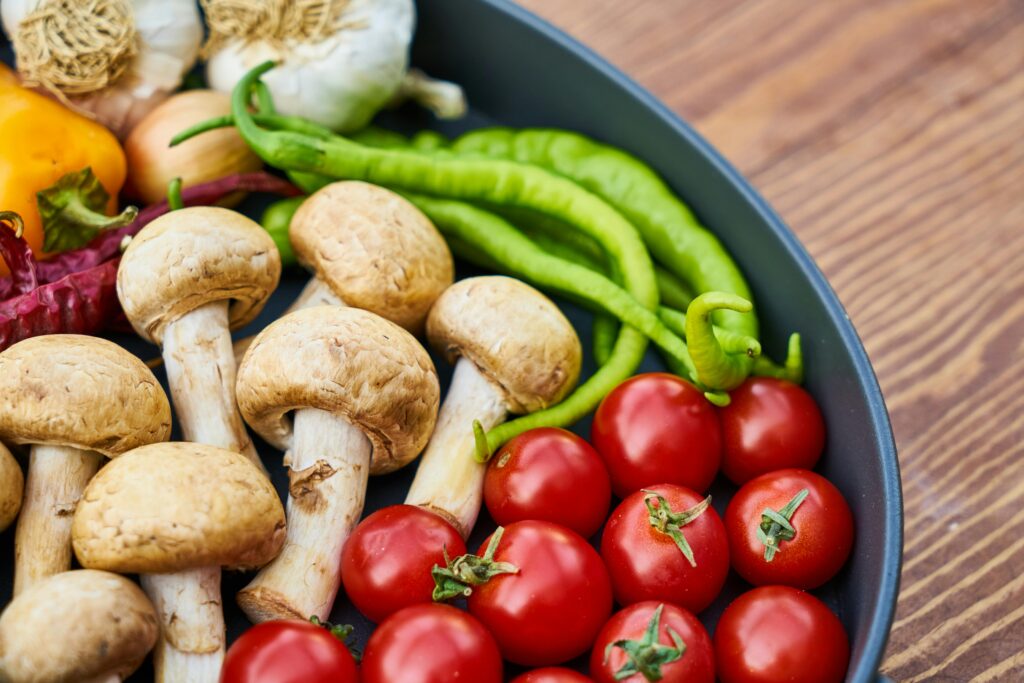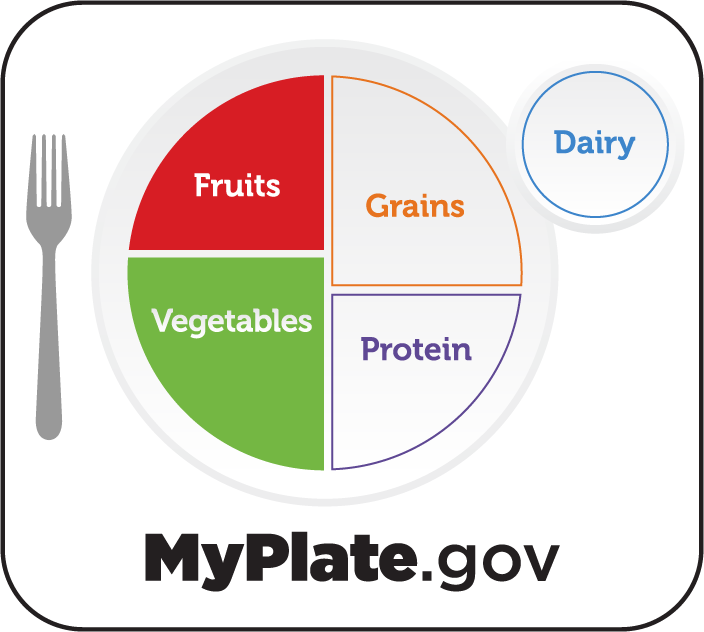
We’ve all heard the phrase, “You are what you eat.” And while it might sound cliché, there’s a lot of truth packed into those five words.
A balanced diet is important because your body runs on the fuel you give it. Give it what it needs, and it performs at its best—more energy, better focus, fewer sick days. But fall into the all-too-common cycle of skipping meals, grabbing fast food, or cutting entire food groups, and it doesn’t take long before you start feeling run down, foggy, or just “off.”
What Is a Balanced Diet?
A balanced diet means giving your body various foods that provide all the essential nutrients it needs to thrive.
Think of it like your exercise plan—pushups are great, but if that’s the only exercise you ever did, you’ll develop muscle imbalances. Your nutrition is the same way. If you only eat a particular food without balancing it out with others, you’ll develop nutritional imbalances at best.
Macronutrients
Carbohydrates, proteins, and fats—these “macros” are the key players in your overall diet. Each one plays a different primary role. Carbs are your body’s preferred energy source, protein helps with muscle repair and growth, and fats—yes, you need them—support hormone health and brain function.
Micronutrients
These vitamins and minerals help your body perform countless tiny functions—like converting food into energy, keeping your bones strong, and boosting your immune system. Your body can produce some, but many come from your diet and supplements.
Fibre
Fibre is a nondigestible carbohydrate essential for digestive health and helps control blood sugar and lower cholesterol. There are two fibre types, soluble and insoluble, and both are crucial. The bar is set pretty low for fibre. Women need 25 grams daily, and men need 38—most Canadians get half that!
Water
It’s easy to forget, which is obvious because most people don’t drink enough water. But hydration is part of a balanced diet, too. Every cell in your body needs water to function properly.
Don’t Overcomplicate a Balanced Diet
Here’s the thing—balance doesn’t mean perfection. It’s not about eating “clean” 100% of the time. It’s about variety, moderation, and quality. In other words, more colourful plates, fewer ultra-processed snacks, and a little flexibility so you can enjoy life.
Why a Balanced Diet Matters
Eating a balanced diet isn’t just about looking good or hitting a number on the scale. It impacts every area of your life—physically, mentally, and emotionally.
Physical Health Benefits
Eating healthy has immense physical health benefits.
Supports Your Immune System
When you consistently eat nutrient-rich foods, your body is better equipped to fight off colds, infections, and illnesses. This translates into better health and fewer sick days.
Helps Maintain a Healthy Weight
You don’t need to count every calorie. Fueling your body with the right mix of nutrients naturally helps regulate hunger and energy levels.
Lowers Risk of Chronic Diseases
Research consistently shows that balanced diets can reduce the risk of heart disease, type 2 diabetes, high blood pressure, and even certain cancers.
Mental & Emotional Health Benefits
The effects of good eating aren’t only good for your physical well-being.
Stabilizes Your Mood & Energy
Have you ever felt “hangry” or hit that mid-afternoon crash? Balanced meals help avoid blood sugar spikes and crashes, keeping your mood more stable throughout the day.
Boosts Brain Power
Omega-3s and antioxidants have been linked to improved memory, focus, and cognitive health.
Can Ease Symptoms of Anxiety & Depression
While diet alone isn’t a cure-all, more and more studies are exploring the link between gut health and mental health. Eating nutrient-dense and gut-friendly foods can make a real difference in how you feel.

Common Myths About Healthy Eating
Let’s clear the air on a few misconceptions that tend to scare people away from healthier choices.
Healthy Eating Is Expensive
Sure, some health foods can be pricey—but eating balanced doesn’t mean you need to shop at specialty stores. Whole foods like oats, frozen veggies, canned beans, and brown rice are budget-friendly staples. Planning ahead and cooking at home can actually save you money in the long run.
I went vegan almost two years ago. My diet is extremely diverse, with virtually no “meat replacements,” and my grocery bill has been consistently a third or less than when I was eating a traditional diet—even with current grocery store prices!
You Have to Cut Out Carbs or Fat
Nope. Your body needs both to function properly. The key is choosing the right types MOST of the time. Balance, not restriction, is the name of the game.
You Need to Follow Strict Diets to See Results
Trendy diets come and go. What actually works long-term? Sustainable habits. You don’t need to be perfect. You just need to be consistent. Focus on real food, not food rules. Find a way of eating that you can sustain… and eat like that.
How to Start Eating a Balanced Diet Today
You don’t need a complete diet makeover to make progress. Here are a few ways to get started:
- Build a better plate: A simple rule of thumb is to fill half your plate with veggies or fruit, one-quarter with lean protein, and one-quarter with whole grains or starchy veggies.
- Make smart swaps: Choose water over soda sometimes. Try Greek yogurt instead of sour cream. Use whole-grain bread instead of white. Small changes can have a big impact.
- Plan a little, win a lot: Stock your kitchen with go-to staples like frozen veggies, canned tuna, eggs, rice, and oats. This makes quick, balanced meals much easier when life gets busy.
- Don’t skip meals: Skipping meals often leads to overeating later. Try to eat consistently throughout the day, especially when your body tells you it’s hungry. And for the love of all that is holy, don’t skip meals because you overate during the last one!
- Give yourself grace: Progress doesn’t come from perfection. If you grab fast food occasionally or miss a meal, that’s okay. Just get back on track at your next opportunity.
Take Your Health Seriously Before Your Body Forces You To
A balanced diet isn’t about restriction, guilt, or chasing the “perfect” plate. It’s about giving your body what it needs to feel good, move well, and show up for the people and things you care about.
If you’re ready to make small, sustainable changes toward better health, start with one habit today. If you want support in building a balanced routine that actually fits your life, I’m here to help. Contact me and book a free consultation today, and let’s make healthy eating simple and sustainable.